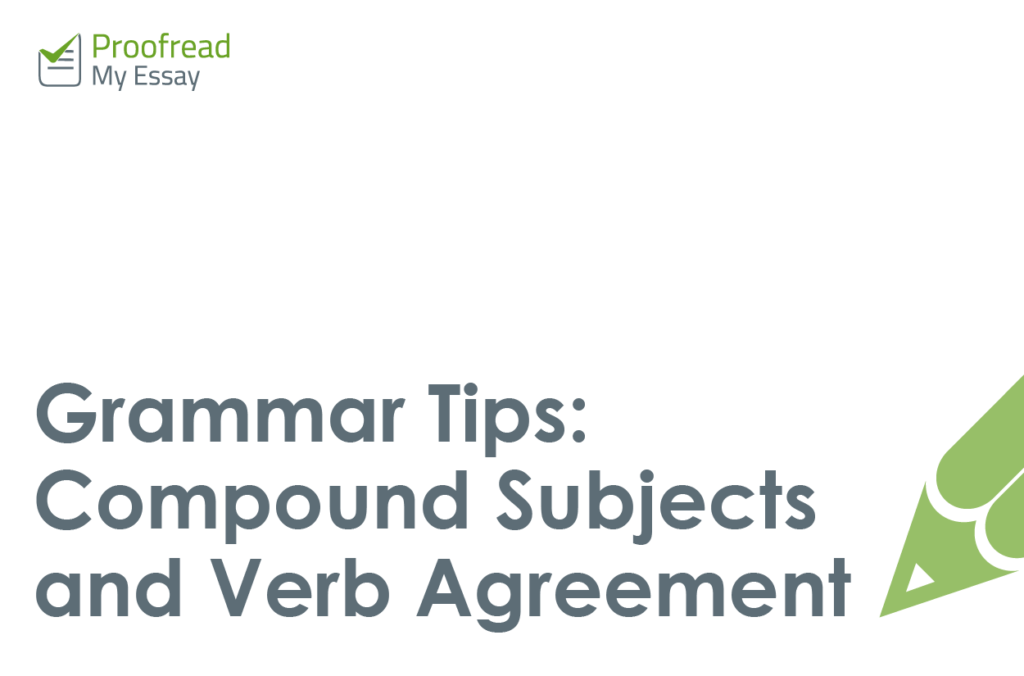Most people know that singular nouns take singular verbs (e.g. ‘He runs’), while plural nouns take plural verbs (e.g. ‘They run’). This is known as subject–verb agreement. But this can be tricky when a sentence contains a compound subject.
In this post, we’ll look at the grammar behind this to help you with your writing.
Compound Subjects with ‘And’
A compound subject is made up of two or more things or people linked with a conjunction. The most common conjunction used for this is ‘and’, such as in:
Tom and Dick are divers.
Here, two people comprise one compound subject. We use the plural verb ‘are’ since it applies to both individuals, even though both ‘Tom’ and ‘Dick’ are singular.

(Image: Jjharvey8/wikimedia)
Compound subjects formed with ‘and’ almost always take a plural verb.
Compound Subjects with ‘Or’ and ‘Nor’
Things are more complicated when a compound subject is formed with ‘or’ or ‘nor’. In these cases, whether we use a singular or plural noun depends on the term closest to the verb. For instance:
Either Tom or the girls are going diving today.
Here, the compound subject is ‘Tom or the girls’. We use ‘are’ because the term closest to the verb is ‘the girls’, which is plural.
If the term closest were singular, however, we would use a singular verb:
Find this useful?
Subscribe to our newsletter and get writing tips from our editors straight to your inbox.
Neither the girls nor Tom is going diving today.
This also applies when one of the terms in an ‘or/nor’ compound is itself a compound subject formed with ‘and’. So in the following, for example:
Either Tom or Beth and Harriet are going to end up disappointed.
We use ‘are’ because the term nearest the verb is ‘Beth and Harriet’. It’s usually better to avoid sentence constructions like this, though, as they can be confusing.
Singular Compound Subjects
The rule about compound subjects formed with ‘and’ always requiring a plural verb does not apply when ‘and’ is part of a term that refers to something singular:
My favourite takeaway food is fish and chips.
The question is whether the terms connected by ‘and’ are separable. For instance, when we say ‘fish and chips’ here, we’re not talking about two things (‘fish’ and ‘chips’) separately, but a single (delicious) meal.

(Image: George Hodan)
If you’re not sure whether a compound subject needs a singular or plural verb, asking yourself whether the terms are easily separable can help you decide.



